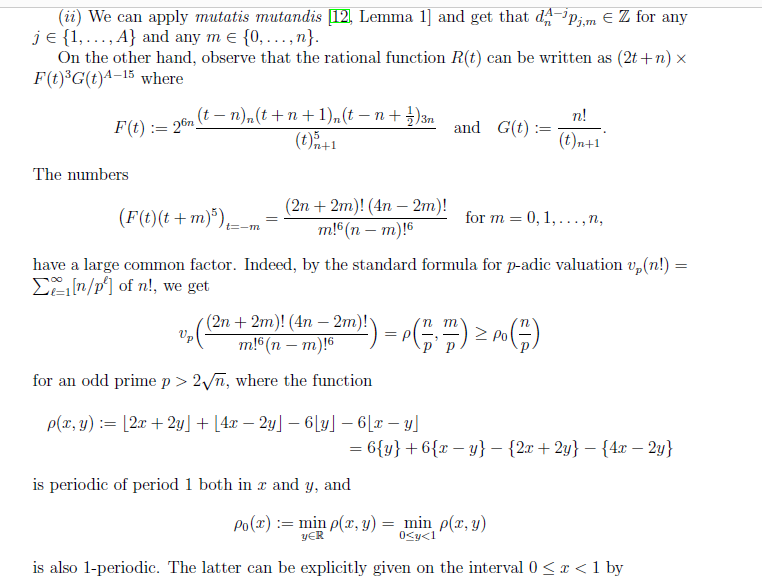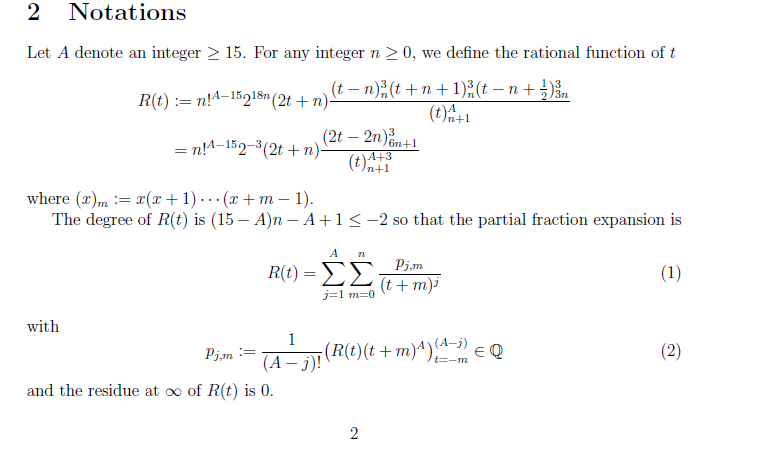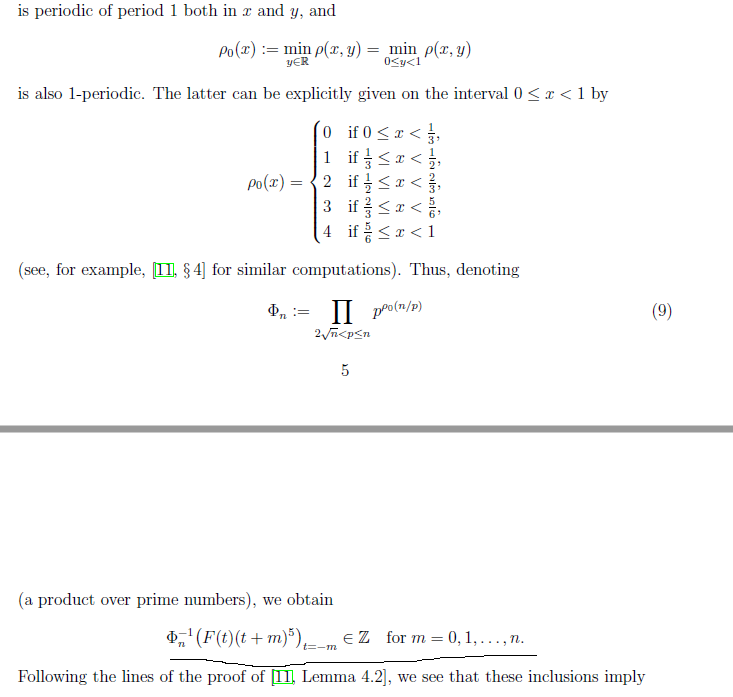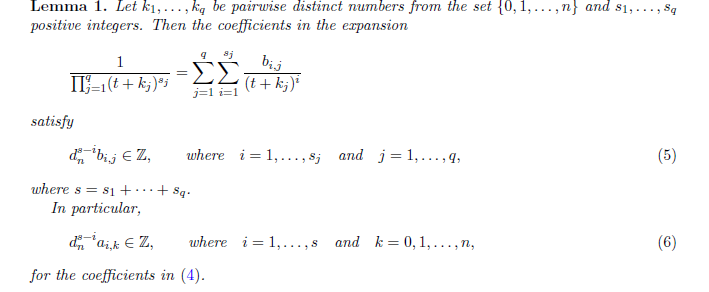I am studying research paper " A note on odd zeta values " by Tanguy Rivoal and Wadim Zudilin .
Note-> This question has been closed 2 times on math.stackexchange . Earlier it was posted on MathOverflow but people here said it should be posted on math stackexchange. But they have closed it 2 times consecutively.
Please help I am badly struck on it.
I couldn't think about how authors write the equation - we obtain $\phi_{(n) }^{-1} ( F(t) (t+m)^5 )_{ t=-m} $ $ \in \mathbb{Z} $ for m= 0 ,1,...,n by defininig $\phi_{(n)} = \prod_{2√n<p\leq n } p^{\rho_0(n/p) } $ .
Kindly see last 2 lines of image posted below , I have underlined(in black) the part in which i have question .
I have understood everything in research paper till this argument but I don't have a clue on how authors derives the underlined part.
I think they are using [12, lemma1] (Paper-" One of odd zeta values from $\zeta(5)$ to $\zeta(25) $ is irrational by elementary means " By Wadim Zudilin )whose image I am posting below but unfortunately I am not able to obtain this relation from the lemma. Image of lemma ->
It would be really helpful for me if anyone can tell me how to deduce this equation $\phi_{(n) }^{-1} ( F(t) (t+m)^5 )_{ t=-m} $ $\in \mathbb{Z}$?



